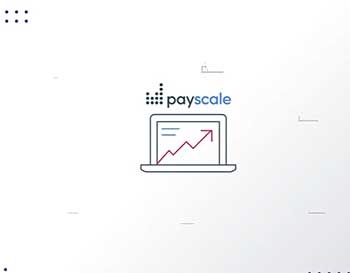So, you’re looking to find out how much money you could be making at your job, or in a new role. And you’ve heard about PayScale and Salary.com – two popular websites for researching and comparing salaries. But which one should you use? And how accurate and reliable are they anyway?
I’ve taken a deep dive into both PayScale and Salary.com to break down the key differences and help you decide which salary tool is best for your needs. Let’s take a look!
A Brief Comparison Table
| Criteria | PayScale | Salary.com |
| Data Source | Crowdsourced employee survey responses | Proprietary surveys & predictive modeling |
| Accuracy | Can be very accurate for niche roles with high response rates | Wide range of jobs but may be less tailored |
| Salary Personalization | Highly customized based on your specifics with paid subscription | More generalized profiles even with premium |
| Individual Vs. Enterprise Focus | Caters more to individuals with tailored data | Geared more towards enterprise compensation analysis |
| Pricing | Starts at $19.95/month for customized reports | Starts at $99/month for detailed compensation data |
| Ease of Use | Simple salary calculator and reports | More robust compensation planning tools |
PayScale Overview
Founded in 2002, PayScale provides a database of salary profiles and a salary calculator to help you research and compare salaries for different jobs, employers, locations, and more.

Some key things to know about PayScale:
- Uses crowdsourced data from employees who take PayScale’s online salary survey. Over 50 million survey responses and counting!
- Offers free general salary estimates based on job title, location, years of experience.
- For $19.95/month you get access to their premium salary data including customized reports and precise salary ranges based on your specific skills and experience.
- Used by individuals and HR departments to benchmark compensation.
Salary.com Overview
With data since 1999, Salary.com also offers a salary calculator and database for researching salaries.

Key facts on Salary.com:
- Uses data from proprietary surveys and modeling to estimate salaries.
- Free salary estimates based on job title, location and some custom filters.
- Premium subscriptions start at $99/month and provide access to customized salary reports, bonus pay info, dialed-in salary ranges based on your exact background.
- Mainly used by HR and compensation teams for enterprise-level salary benchmarking.
Data Sources: Crowdsourced Vs. Proprietary
One of the biggest differences between PayScale and Salary.com lies in where they get their data from.
PayScale relies primarily on crowdsourced data from individuals who take their online salary survey. This means PayScale’s data comes directly from employees in the trenches.
Over 50 million survey responses give PayScale a robust data set. But it can be limited in cases of low survey response rates for particular jobs or geographies.
Salary.com uses data from proprietary surveys and predictive salary modeling. So Salary.com’s data is derived from compensation surveys they conduct as well as internal models.
This allows Salary.com to estimate salaries for a wider range of jobs and locations. But the data may be less directly representative of actual earners compared to PayScale’s crowdsourcing.
Also Read: Comparison Between Frost Bank And Wells Fargo.
Accuracy And Reliability
When it comes to accuracy and reliability, both PayScale and Salary.com have their strengths and limitations.
PayScale’s crowdsourced data represents real salaries that employees report themselves. But accuracy can vary based on sample size and if the respondents reflect the industry and location distribution.
Salary.com captures a wider range of salaries through its internal surveys and modeling. But since it’s not asking actual employees, the data may not always line up with real-world compensation.
Independent salary surveys find that both PayScale and Salary.com offer reasonably accurate salary estimates when using their detailed reports. But like with any tool, take the estimates as a guideline, not gospel truth.
Free Vs. Paid Offerings
Both sites provide free salary estimates based just on job title, location, and a few filters. But hands down, the paid subscriptions unlock way more customization and value.
PayScale’s free version only lets you estimate by job title. You can enter some filters like years of experience, skills, company size. But the salary ranges given are still quite wide.
With PayScale’s paid subscription, you can generate customized reports factoring in all of your specifics. This provides salary ranges dialed into someone with your exact background and job factors.
Salary.com’s free version allows more customization than PayScale, like factoring in education, years of experience and company size. But you still only get wide salary ranges based on broader profiles.
For precise, tailored ranges, Salary.com’s paid subscription includes customized salary reports and bonus pay data based on your full profile.
Individuals Vs. Enterprise Use Cases
PayScale and Salary.com aim to help both individuals and organizations with compensation insights. But certain features cater more to one or the other.
PayScale offers a ton of value for individual employees seeking salary data personalized for their exact scenario. This helps discover your earning potential and negotiate pay confidently.
PayScale also assists HR and compensation teams with market pay intelligence. But the enterprise-focused features shine brighter on Salary.com.
Salary.com really targets enterprise needs like integrated salary planning tools and API access for payroll systems. While individuals can benefit from Salary.com too, PayScale provides a more customized experience for personal career and salary questions.
Also Read: Comparison Between ServiceMaster And ServPro.
Frequently Asked Questions (FAQ)
The main reasons PayScale and Salary.com give such different salary estimates include:
Data sources – PayScale uses crowdsourced survey data direct from employees, while Salary.com relies more on proprietary surveys and predictive modeling.
Customization – PayScale offers highly tailored reports based on your niche experience. Salary.com focuses more on generalized job profiles.
Target users – PayScale caters to individuals looking for granular salary insights. Salary.com serves larger enterprise compensation needs.
PayScale and Salary.com are both considered generally accurate sources for salary estimates, with some caveats. Independent salary surveys find PayScale may provide a tighter range based directly on employee-reported salaries.
But Salary.com can provide estimates for a broader set of jobs and locations based on modeling. For the most precise salary insights personalized for you as an individual, PayScale is likely the most accurate option.
Salary.com is seen as a reasonably credible source for salary estimates, but the accuracy can vary. Since Salary.com does not crowdsource direct employee-reported salaries like PayScale, its data may not always align with real-world compensation.
The accuracy improves when using Salary.com’s paid subscription service to get customized salary estimates based on your specifics. But all salary tools should be seen as guidelines, not as absolute truth.
Salary.com is reasonably credible and trusted given factors like:
In business for over 20+ years
Used by many top employers for compensation research
Salary estimates found to be largely in line with actual pay in independent salary surveys
Robust methodology using surveys and predictive modeling
However, Salary.com’s data will generally not be as tailored and direct as crowdsourced employee pay data on PayScale. Take Salary.com salary ranges as credible directional estimates, but understand they are modeled projections that may not fully align with real-world pay.
Also watch this video of PayScale!
Conclusion
At the end of the day, is one source clearly better than the other? Well, it depends on your specific needs and priorities!
For extremely customized reports as an individual employee, PayScale may provide greater value. PayScale’s crowdsourced responses can offer insights tailored to your niche scenario.
For salary ranges across a wide array of jobs and using sophisticated modeling, Salary.com is hard to beat. Especially for enterprise compensation analysis.
Both sites offer reputable data sources and methodologies with their respective pros and cons. Evaluate which one aligns more with your priorities and budget. Or use both together for a comprehensive view! I hope this breakdown of PayScale Vs. Salary.com has helped provide some clarity. Now you can feel confident choosing the best salary tool(s) for your needs. Let me know if you have any other questions!

